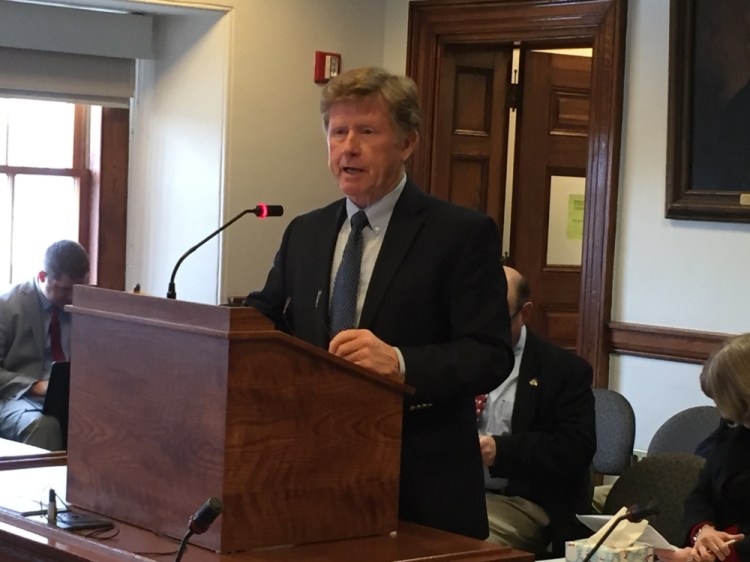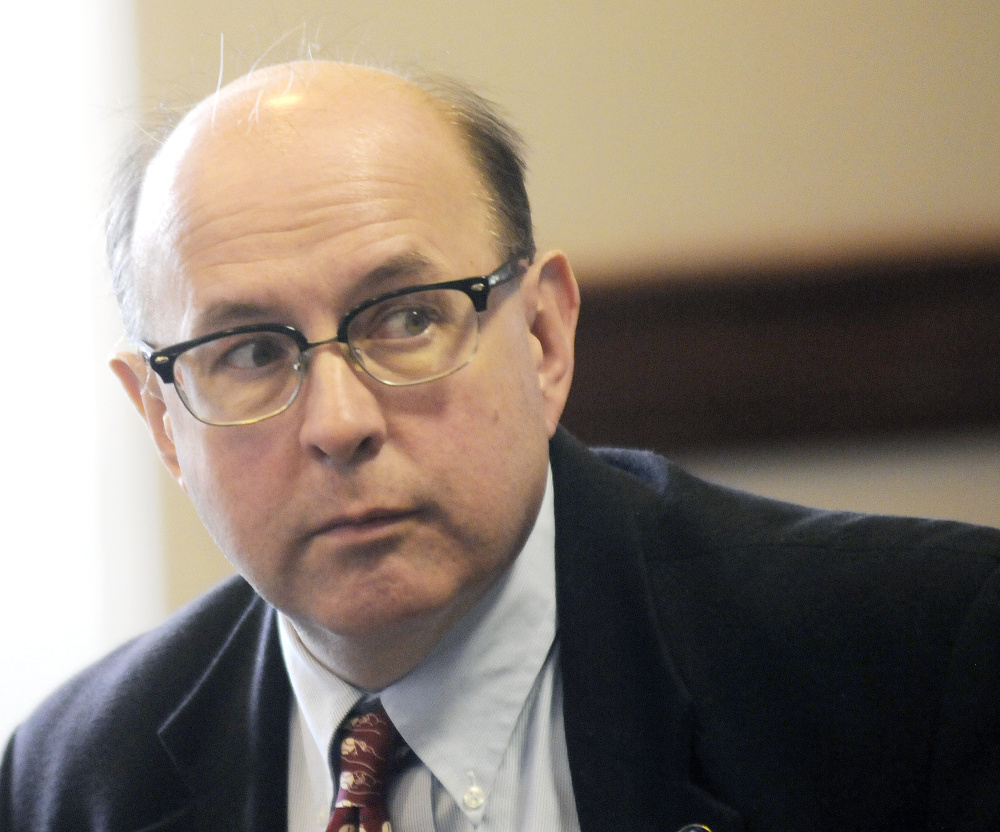AUGUSTA — Supporters of a bill that would put some distance between voters and videographers monitoring referendum signature-gathering said Monday that the proposal is a modest step to address an activity that could one day escalate into fistfights or discourage election participation.
The proposal by Sen. Bill Diamond, D-Windham, is a response to several complaints last Election Day of gun rights activists videotaping – and in some cases confronting – voters signing a petition to stiffen background checks on gun sales. Diamond, a former Maine secretary of state, said he was disturbed by the reports and is worried that the issue could “mushroom,” leading to conflicts at the ballot box.
“What we don’t need is to have fistfights at polling places or videotapers videotaping vidoetapers,” Diamond said.
Diamond’s bill would not prohibit videotaping at polling places, although a top election official said Monday that the state could legally pursue an outright ban. Instead, the bill establishes a 15-foot setback between a videographer and a voting booth. The buffer would also apply to a videographer and the area where referendum petition circulators solicit signatures.
Deputy Secretary of State Julie Flynn said Maine law does not address filming at polling locations, prohibiting only activity that obstructs the free passage of voters or creates a disturbance. She said her office had never dealt with the practice until last year, when it began fielding complaints from voters, petition circulators and election wardens.
“In the most egregious cases (the videographers) were getting in the face of voters and asking them their name or why they were signing the petition,” Flynn said.
She said that opponents of a particular petition have the right to tell individuals why they shouldn’t sign. Doing so, she said, is protected speech. However, Flynn said videotaping neither qualifies as speech nor does it ensure that petition circulators are complying with Maine law.
Individuals who videotaped voters in November told the Portland Press Herald and other media outlets that the activity wasn’t designed to intimidate, but to ensure that petition circulators complied with Maine’s referendum law.
Flynn, who testified in support of Diamond’s bill, L.D. 1574, said there are already plenty of checks and balances for petition circulators.
Flynn said the state could ban videotaping in polling places, but doing so would require creating an exception for the media, which often videotapes voters on Election Day to add visual elements to their newscasts. The media exemption could prove tricky, she said, because of the various iterations of contemporary media, including blogs and partisan news outlets.
The Maine Municipal Association also supported the bill. Geoff Herman, the MMA’s legislative liaison, said the organization’s 70-member policy committee overwhelming backed it.
“Voter comfort is the main thing,” he said. “If (the policy committee) had their way, they’d go even further.”
No one testified against the measure.
At least seven states – Florida, Georgia, Kentucky, Michigan, Nevada, North Carolina and Texas – expressly prohibit the use of photographic and recording equipment inside polling places, according to the Digital Media Law Project. However, there appear to be few state laws that specifically address videotaping signature gathering, which can take place at polling places or in public areas.
The filming that took place in November marked a new front in the conflict over gun control and efforts to set public policy on guns and other issues at the ballot box. While disputes over ballot drives are not uncommon, the deployment of videographers by an opposition group appears to be unprecedented in Maine.
Project Dirigo, the group that organized the videotaping, defended its actions, saying it was ensuring that signatures were gathered properly.
“We did not video ‘voters.’ Those interacting with signature gatherers may or may not have voted, or been entitled to vote. We don’t care about voting,” an unsigned email sent to media outlets said. “We care about the integrity of the signature-gathering process – especially when rich interests from other states seek, for the second time in as many years, to push an outside agenda with rich people’s money.”
Maine Moms Demand Action is the group behind the background check referendum. The group is the state chapter of Moms Demand Action for Gun Sense, which is affiliated with Everytown for Gun Safety Action Fund, a group created by former New York City Mayor Michael Bloomberg, a national gun control advocate.
The two groups merged last year, with Bloomberg vowing to commit $50 million to candidates who support gun control and to launch ballot initiatives in several states, including Maine.
Bloomberg’s efforts face opposition from the National Rifle Association, as well as other groups, including the Gun Owners of Maine, which supported a bill that removed the permit requirement to carry a concealed handgun. The bill became law despite the opposition of Moms Demand Action for Gun Sense and Everytown for Gun Safety Action Fund.
The signature-gathering process for referendums has frequently been controversial. In 2009, Republican lawmakers trying to overturn a new tax reform law accused Democratic lawmakers of harassing people who were gathering petition signatures around Maine.
Lawmakers have contemplated banning the practice of circulating referendum petitions at polling places. Such efforts have met stiff resistance from activists and political organizations, who put a high value on Election Day signature collection. In 2005, Secretary of State Matt Dunlap supported a bill that would prevent referendum organizers from collecting petition signatures within 25 feet of the entrance to a polling place. The proposal received a strong endorsement from the Veterans and Legal Affairs Committee, but created a backlash from political organizations. The bill eventually failed in the Legislature.
Monday’s public hearing was held before lawmakers on the Veterans and Legal Affairs Committee. The committee will hold a work session on the bill and has the option of amending it, accepting it or rejecting it.
Send questions/comments to the editors.



